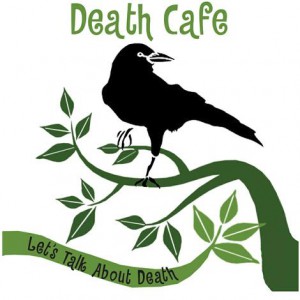“Death Cafe” End-of-Life Conversations and Coffee Now Served Worldwide
Main Article Content
Abstract
Well-coiffed and clad in pink, Lori is hoping to learn about legacy. What does it mean and how can she leave one? This grandmother of seven wants to be remembered well, and she intends to create some memories before it is too late.
Aida sips coffee between tears. Her boyfriend died last week- one week shy of his 90th birthday. Well past 80 herself, she is looking for answers about what to do with her money. Should she spend it on herself or leave it to her children? She wants to ensure her life-savings isn’t frittered on cigarettes and alcohol if she chooses to create a will.
Lenore says “devastation” is what brought her here. She has experienced plenty in recent years, including the suicide of a 15 year-old grandson.
“It was the death of the future,” Lenore tells the other seven attending this afternoon “Death Cafe” at a senior center on Chicago’s northwest side. This event is just one in a “Death Cafe” movement stretching far beyond this middle class enclave in the shadow of O’Hare International Airport; more than one thousand “Death Cafe” events have been facilitated across the U.S., Europe, Australia and Asia since the first held three years ago this month in London. The objective of “Death Cafe,” always conducted over coffee and cake, is to “increase awareness of death with a view to helping people make the most of their finite lives.”
Dan Bulf, the volunteer moderator of this event, promises his predominately female crowd that by the end of the session, they will experience a “deeper sense of connection." He asks everyone to be respectful and kind, emphasizing that “Death Cafe” is not intended to serve as grief support, counseling or as the determiner of right and wrong. “This is about your reality,” he tells the nodding seniors.
Bulf asks what a “good death” would look like.
“Amongst family.”
“As little pain and suffering as possible."
“Leaving no mess behind.”
“On my own terms.”
“At peace with my decision.”
“Non-medicalized.”
“With no long-term health problems.”
Bulf smiles warmly after each answer; after all, this isn’t about right or wrong. Conversation flows about how to make such “good deaths” happen. Some factors can be controlled; others cannot.
“It really makes you aware of the reality we have to deal with eventually,” says 72 year-old Dean afterwards. “It’s challenging. Very challenging.”
Bulf agrees. Making that challenge easier is exactly why he became a “Death Cafe” facilitator. “This is the first step in dealing with death,” Bulf says. “This is an acknowledgement. Then you are comfortable and can start planning.”
Lizzy Miles hosted the first American “Death Cafe” in a suburban Columbus, Ohio Panera Bread in 2012. She has since held one each month since, drawing attendees from promotions on social media, community newspaper advertisements and postings in the eatery. As a hospice social worker, Miles says she noticed very few broach the subject of death- even when on its brink. “Anywhere I went, if I told people I worked in hospice, they would tell me personal stories,” Miles says. “So I had the realization that people don’t talk, but some people want to.”
In Atlanta, at least 25 people each month are proving that to be accurate. “Death Cafe” attendees have ranged in age from 18-102, gathering in the visitor center at Oakland Cemetery. Mark LaRocca-Pitts, a former hospice chaplain, facilitates the two-hour events. “It’s a really real issue,” he says. “We have a saying that talking about sex won’t make you pregnant, and talking about death won’t kill you.”
Megan Mooney, who facilitates “Death Cafe” in St. Joseph, Missouri, says she believes its loose format is attractive to those who may be hesitant. “They can talk about whatever they want, there is nothing off-limits,” she says.
Meeting among similarly-minded strangers may make this topic less touchy.
“When they try to talk to their friends or families they get shut down or told they are morbid,” Mooney says. “They really want to have an authentic conversation about death, but they have no one to have that conversation with. They can here.”

